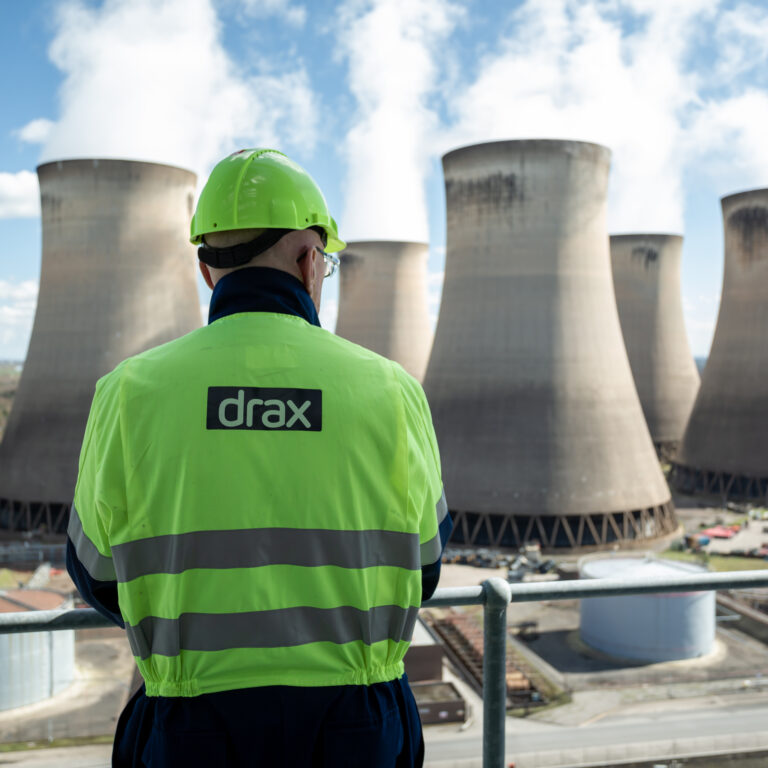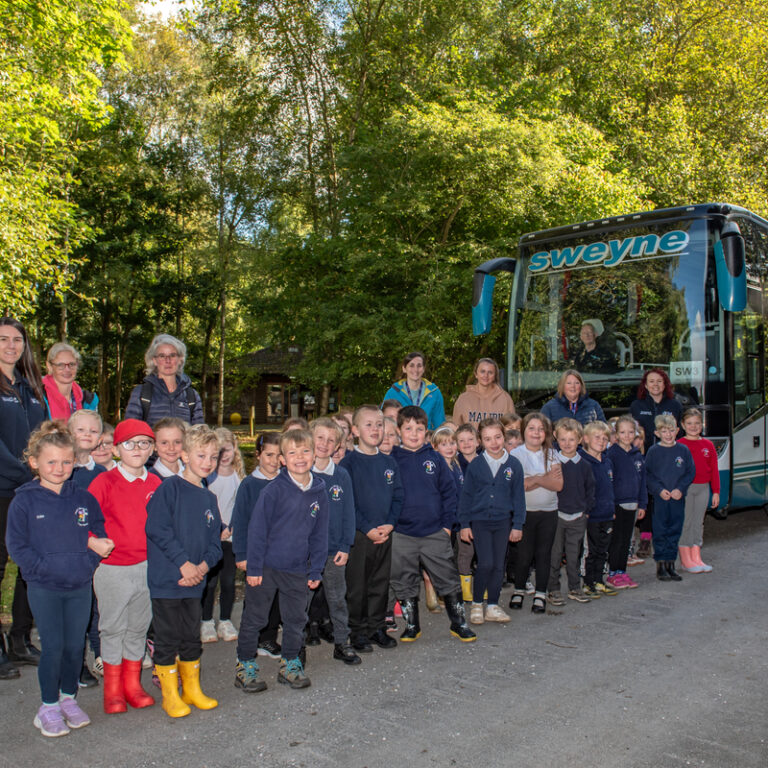The Foundation supports education and skills development for non-profit organisations and social enterprises in the regions where it operates and runs two grant cycles a year. Today’s announcement is part of a total of £323,000 that makes up the first round of grants that have been awarded across the UK, US and Canada since the Foundation was launched in March 2023.
Shona King, Drax Head of Community, said: “We are passionate about giving back to the communities we operate in and earlier this year we launched the Drax Foundation as part of an exciting new chapter in how we deliver positive social impact. We are pleased to announce that nearly 45% of our initial £323,000 grant awards will support six STEM projects in the UK, more than 15% of which will support programmes here in Scotland.”
Of the total, £50,000 has been awarded to two different projects in Scotland;
- Argyll and the Isles Coast Countryside Trust (ACT) to expand outdoor STEM learning for primary school children in Argyll
- Kirkcudbright Dark Space Planetarium to improve access to STEM education for rural populations in Southwest Scotland.
Julie Young from the Argyll and the Isles Coast Countryside Trust (ACT) said: “We believe that learning outdoors is extremely beneficial to young children and nurtures their innate curiosity and tendencies to want to explore. The Drax Foundation have given us support this year of £25,000, which means that we can extend our STEM outdoor learning sessions to a wider age range and number of young learners. We are really grateful for the support.”
Frances Coombey, from the Kirkcudbright Dark Space Planetarium, said: “Our charity’s purpose is to promote awareness and understanding of science, technology and space exploration in a way that is interactive, inclusive, and fun. The funding from the Drax Foundation will allow us to implement our STEM Learning Programme to provide exciting, high quality learning opportunities for young people living in rural South West Scotland through school visits, researcher sessions and a paid summer internship.”
Drax Foundation funds initiatives that support education and skills development in Science Technology Engineering and Maths (STEM), as well as those that improve green spaces and enhance biodiversity within local communities. Funding is available for organisations ranging from smaller community-led projects to larger grants of £50,000 for established non-profit organizations.
Priority is given to organisations that deliver programmes for under-served and under-represented groups, advance gender equality and support indigenous communities.
Organisations and initiatives that meet Drax’s funding and selection criteria are encouraged to visit www.drax.com/community to learn more about the Foundation and submit an initial expression of interest.
The Drax Foundation is a donor advised fund administered by the Charities Trust (an independently registered charity with the UK Charity Commission, charity no. 327489)
ENDS
Pic caption 1: Kirkcudbright Dark Space Planetarium offers fun and interactive STEM activities for young people
Pic caption 1: Children taking part in an ACT outdoor learning session
Media contacts:
Megan Hopgood
Communications Officer
E: [email protected]
T: 07936 350 175
About Drax
Drax Group’s purpose is to enable a zero carbon, lower cost energy future and in 2019 announced a world-leading ambition to be carbon negative by 2030, using bioenergy with carbon capture and storage (BECCS) technology.
Drax’s around 3,000 employees operate across three principal areas of activity – electricity generation, electricity sales to business customers and compressed wood pellet production and supply to third parties. For more information visit www.drax.com
Power generation:
Drax owns and operates a portfolio of renewable electricity generation assets in England and Scotland. The assets include the UK’s largest power station, based at Selby, North Yorkshire, which supplies five percent of the country’s electricity needs.
Having converted Drax Power Station to use sustainable biomass instead of coal it has become the UK’s biggest renewable power generator and the largest decarbonisation project in Europe. It is also where Drax is piloting the groundbreaking negative emissions technology BECCS within its CCUS (Carbon Capture Utilisation and Storage) Incubation Area.
Its pumped storage, hydro and energy from waste assets in Scotland include Cruachan Power Station – a flexible pumped storage facility within the hollowed-out mountain Ben Cruachan.
The Group also aims to build on its BECCS innovation at Drax Power Station with a target to deliver 4 million tonnes of negative CO2 emissions each year from new-build BECCS outside of the UK by 2030 and is currently developing models for North American and European markets.
Pellet production and supply:
The Group has 19 operational pellet plants and developments with nameplate production capacity of around 5 million tonnes a year.
Drax is targeting 8 million tonnes of production capacity by 2030, which will require the development of over 3 million tonnes of new biomass pellet production capacity. The pellets are produced using materials sourced from sustainably managed working forests and are supplied to third party customers in Europe and Asia for the generation of renewable power.
Drax’s pellet plants supply biomass used at its own power station in North Yorkshire, England to generate flexible, renewable power for the UK’s homes and businesses, and also to customers in Europe and Asia.
Customers:
Drax supplies renewable electricity to UK businesses, offering a range of energy-related services including energy optimisation, as well as electric vehicle strategy and management.
To find out more go to the website energy.drax.com
About Kirkcudbright Dark Space Planetarium
Kirkcudbright Dark Space Planetarium is an educational facility which opened to the public in July 2021.
It was developed to build on the regions dark sky accolade by providing a complementary visitor attraction that can be visited come rain or shine.
The space centre and planetarium are housed within a former primary school, dating from Victorian times, that has been transformed by the community group, Kirkcudbright Development Trust.
Our educational exhibition area focusses on three themes – enjoying space, exploring space, and understanding space. For each of these themes we have several interactive exhibits including a planisphere, binoculars, robotic space rock grabber, rocket launchers, gravity well and infrared camera.
Beneath our 360-planetarium dome, we deliver live shows in which the audience learn about our beautiful dark skies and do some constellation hopping, after which we fly through the solar system exploring other planets and moons.
We also screen educational films on the dome; these cover topics such as observing the space exploration, climate change, star formation and the search for life beyond Earth.





















